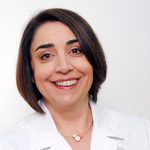
31 Oct How Poor Dental Hygiene Affects Your Lungs

Fall is here, and Winter is shortly approaching. We welcome the beauty of autumn-colored leaves and coolness of freshly fallen. But there is another season lurking around; one we try to avoid – cold and flu season. Starting in November, cold and flu season can run as late as May. The virus thrives in cold and dry environments and thus peaks during December – February. If not properly treated, these seemingly common illnesses can turn into bronchitis, pneumonia, or other potentially life-threatening illness. Taking care of your mouth and teeth plays an important role in preventing potential respiratory issues. Here’s how your dental hygiene habits can affect your lungs.
A Host for Bacteria
The human mouth contains more bacteria than the total population of the earth. Scientists have discovered over 700 distinct species of bacteria living in our mouths, some good and some bad. While we may brush and floss regularly, we are also eating, drinking, talking, kissing, and exposing our mouths to a host of germs every second of the day. An infected toothbrush can carry germs as well. Consider then for a moment what happens if we do not brush and floss regularly.
The Spread of Periodontal Disease
In the absence of a daily dental hygiene program, our teeth begin to build plaque, a sticky film on our enamel that allows bacteria to thrive. Periodontal disease, also known as gum disease is an infection of the tissues that surround your teeth. It is caused by the bacteria in the dental plaque. The bacteria in the plaque initiate a response from our own immune system, which in turn causes inflammation. The bacterial infection can then begin to travel to other parts of your body, including the lungs.
In cases of lung infections, like flu or similar, the lungs become more susceptible to more infections from other types of bacteria. Once the respiratory system becomes inflamed, it begins to accrue too much mucus, which restricts airways, causing bronchitis. Suddenly, a person can find themselves dizzy and wheezing, short of breath and plagued by a chronic cough. Left untreated bronchitis can turn into pneumonia. Every year nearly 1 million people in the United States are treated for pneumonia in hospitals, and sadly about 50,000 die from this illness. Untreated periodontal disease can contribute to the development of complicated lung infections thru different mechanisms.
Oral pathogens may be directly inhaled, bacterial enzymes from oral bacteria may reduce the protection against colonization provided by mucosal secretion, or different products from the oral infection may contribute to colonization of the respiratory epithelium. Elderly are especially at risk of these events. Elderly patients with poor oral hygiene develop more “fever days and upper respiratory diseases” than persons with good oral hygiene, according to research. These facts are not intended to scare anyone but are meant to create awareness of the importance of adopting regular dental hygiene habits.
Preventive Care
While periodontal disease is certainly not the only cause of respiratory infection, it can be a contributor to the complications. In case of respiratory infections, like the flu, your first step is a visit to your physician to determine the right steps in preventing it. This may include an influenza shot. Simple dental hygiene habits are another way to remove harmful bacteria. Remember the Daily 4: Brush, rinse, floss, chew. Brush 2 times per day for 2 minutes each time to keep plaque from building up on your teeth.
Regular 6-month cleanings are important in removing plaque build-up that your toothbrush cannot. Dental x-rays allow your dental hygienist to analyze the health of your mouth below the surface. If you are experiencing dental sensitivity, bleeding gums, or other mouth irritation, contact your dentist immediately.
If you do find yourself ill with a cold, flu or other winter bugs, throw out your toothbrush and start fresh. Gargle regularly to kill germs. Place some space between yourself and others to prevent the jumping of germs from one person to the other. Stay warm, drinks fluids, and eat nutritionally.
Wishing you and your family a healthy and happy winter season.
Imperial Dental Center
“We Love to See You Smile!”


